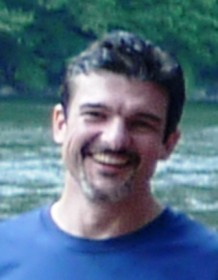
12:00 am to 11:59 pm
Event Location: NSH 1305
Bio: Dr. Dan Stilwell is a Professor in the Bradley Department of Electrical and Computer Engineering at Virginia Tech, Blacksburg, Virginia. He earned a PhD in electrical engineering at Johns Hopkins University in 1999, the MS from Virginia Tech in 1993, and the BS from the University of Massachusetts in 1991. His research addresses the development of fundamental control and estimation theory for mobile sensors networks and the development of new maritime robots for underwater and surface applications. He is a past associate editor of the IEEE Journal of Oceanic Engineering. He is a recipient of the National Science Foundation CAREER award and the Office of Naval Research Young Investigator Program award, and he was named a College of Engineering Outstanding Assistant Professor.
Abstract: We report on the development of a sensing and autonomy system for shallow-draft vessels that operate quickly on tropical rivers. Tropical riverine systems are characterized by being very large, poorly mapped, and possessing surface as well as subsurface hazards. The computational requirement of generating plans for riverine vessels can be prohibitive. Shallow-draft boats can experience significant side-slip, and thus vessel dynamics cannot be ignored. Moreover, the large size of a riverine environment prevents real-time wide-area planning. Our approach is to continuously compute a sequence of dynamically feasible local trajectories that are each short enough to be computed in real-time. By incorporating specific global information into computation of local trajectories, we get a formal statement of conditions under which the sequence of trajectories will converge to a goal location, and a formal statement of the probability of mission success. In addition to formal results, we also report on field trials conducted in Virginia and Louisiana, and we discuss the practical realities of sensing and control for riverine applications.
